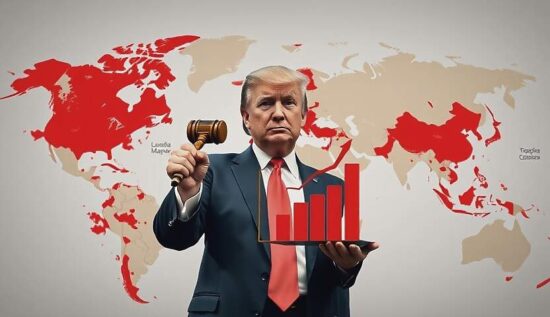Washington, D.C. – US President Donald Trump announced a new round of tariffs on Wednesday, part of his “Liberation Day” plan, which could spark global trade tensions.
At the White House Rose Garden, Trump said he will introduce a system of reciprocal tariffs for countries worldwide. The new tariff package continues Trump’s aggressive trade policy, with a trade war with the European Union now seemingly inevitable, affecting the global economy as well.
Trump stated, “They do it to us, we do it to them” and the tariffs will be as high as the rates imposed by other countries on US goods. He expects to earn “billions and billions” of US dollars from the tariffs.
The tariffs will be reciprocal, meaning that if a country imposes a 10% tariff on a specific good, the US will also impose a 10% tariff on the same good.
Trump confirmed that the global tariffs of 25% on passenger vehicles and light trucks will take effect on Thursday, while tariffs on imported auto parts will begin on May 3. The US will impose 20% tariffs on EU imports and 34% on Chinese imports, according to a table displayed by Trump during the announcement.
Trump described the day as a historic moment, saying, “This will be a day that will go down in history as the day the American industry was reborn, the day America took back its fate and the day we began to make America rich again.”
He will soon sign an executive order, stating that jobs and factories will return to the US. He believes that more production at home will lead to more competition and lower prices, calling it an “economic independence declaration.”
An import tariff functions similarly to a tax, paid by the importing company in this case, likely to be passed on to consumers, potentially increasing prices and inflation. Trump’s goal is to deter US companies from importing products, ultimately promoting the US as a production site.
However, with retaliatory tariffs expected and export-oriented companies likely to face revenue losses, this could lead to a decline in production and potential job cuts, affecting the economy as a whole. A escalating trade conflict between the US and the EU will thus have noticeable effects on German consumers as well.





